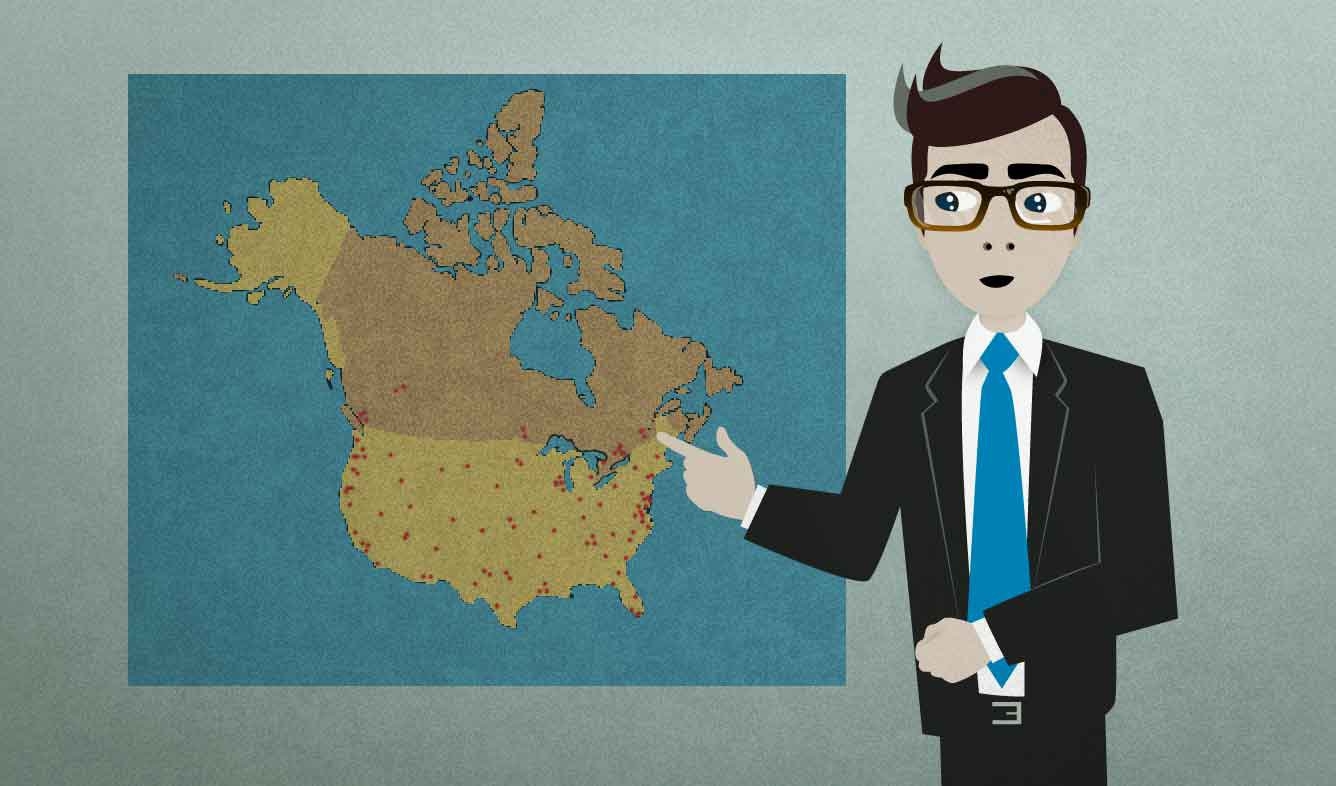“We have over 300 locations across the U.S. and Canada.”
You work for a fast food company. You're giving a presentation about your company's business. You describe how large the company is.
We have over 300 locations across the U.S. and Canada.
Want Video and Sound? Follow us on YouTube

(a chain's) locations
A store or restaurant company that has lots of stores in different places is called a "chain". Each store in the chain is called a "location". For example a representative from such a company could say:
We have over 300 locations across the U.S. and Canada.
You use the word "location" in this way when you're talking about the company as a business. In everyday life, when you want to talk about one store or restaurant in a chain, you just call it a "store" or a "restaurant".
the U.S.
When you're talking or writing about the United States, the most common and natural way to refer to the country is to say "the U.S.". This is much more common than calling it "U.S.A." or "the United States".
Notice that you always have "the" in front of "U.S.".
over (a number)
In writing or formal speeches, you use "over" to mean "more than" some number:
There must have been over a thousand people there.
Over 20% of our employees have Master's degrees or Ph.D.'s.
Over 500 people have signed up to volunteer.
It's used in both spoken and written English, but in writing it's probably more common than using "more than".
across (a country)
When you're talking about something that exists in many different places in a country, use the word "across" to describe where it is:
Libraries across the U.S. are having to make big changes to how they operate.
"Across" only works for countries that are fairly large, however. It wouldn't fit well for an island country. "Throughout" would be better:
People throughout Japan are getting caught up in the craze.
